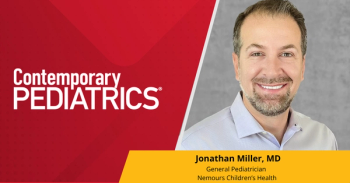
Examining risk factors of severe MIS-C outcomes
Some cases of multisystem inflammatory syndrome in children (MIS-C) can have severe outcomes. An investigation examined if certain demographic and clinical characteristics are linked to those outcomes.
Multisystem inflammatory syndrome in children (MIS-C) can pose a problem for diagnosis and management because the condition manifests can vary so widely. An investigation in The Lancet Child & Adolescent Health looked into whether some factors were consistently linked to severe MIS-C outcomes.1
The investigators ran a retrospective surveillance study that included patients who met the Centers for Disease Control and Prevention case definition of MIS-C. Patients were aged younger than 21 years, febrile, had laboratory evidence of inflammation, hospital admission, multisystem organ involvement, no alternative plausible diagnosis, and either laboratory confirmation of a severe acute respiratory syndrome coronavirus 2 infection or a known exposure to coronavirus disease 2019 within 4 weeks of illness. Their illness also had been reported by local or state health departments. Factors considered by the investigators included pre-existing markers such as age and sex as well as clinical results such as symptoms and laboratory findings. Serious outcomes examined included admission to the intensive care unit, shock, decreased cardiac function, myocarditis, and coronary artery abnormalities.
A total of 1080 patients met the case definition of MIS-C and had onset of symptoms between March 11, 2020, and October 10, 2020. Admission to the intensive care unit was more likely in the patients aged 6 to 12 years (adjusted odds ratio [aOR] 1.9, 95% CI 1.4–2.6) as well as those aged 13 to 20 years (aOR 2.6, 95% CI 1.8–3.8) than patients aged 0 to 5 years. Non-Hispanic Black patients were more likely to require intensive care admission than non-Hispanic White patients as well (aOR 1.6, 95% CI 1.0–2.4). Patients with abdominal pain (aOR 1.7, 95% CI 1.2–2.7) and shortness of breath (aOR 1.9, 95% CI 1.2–2.9) had greater odds of requiring intensive care admission as well as those with increase concentrations of brain natriuretic peptide (BNP), N-terminal pro B-type BNP, interleukin-6, troponin, ferritin, D-dimer, or C-reactive protein, along with reduced platelet or lymphocyte counts. Investigators noted similar association for shock, myocarditis, and decreased cardiac function. Coronary artery abnormalities were more common in patients who had a conjunctival infection (aOR 2.3, 95% CI 1.4–3.7) or mucocutaneous lesions (aOR 2.2, 95% CI 1.3–3.5). They were also more common in male patients (aOR 1·5, 95% CI 1.1–2.1) than in female patients.
The investigators concluded that there are certain demographic and clinical characteristics that appear to be connected to severe MIS-C outcomes, which could be important in recognizing and managing these kinds of patients.
Reference
1. Abrams J, Oster M, Godfred-Cato S, et al. Factors linked to severe outcomes in multisystem inflammatory syndrome in children (MIS-C) in the USA: a retrospective surveillance study. Lancet Child Adolesc Health. March 9, 2021. Epub ahead of print. doi:10.1016/s2352-4642(21)00050-x
Newsletter
Access practical, evidence-based guidance to support better care for our youngest patients. Join our email list for the latest clinical updates.








